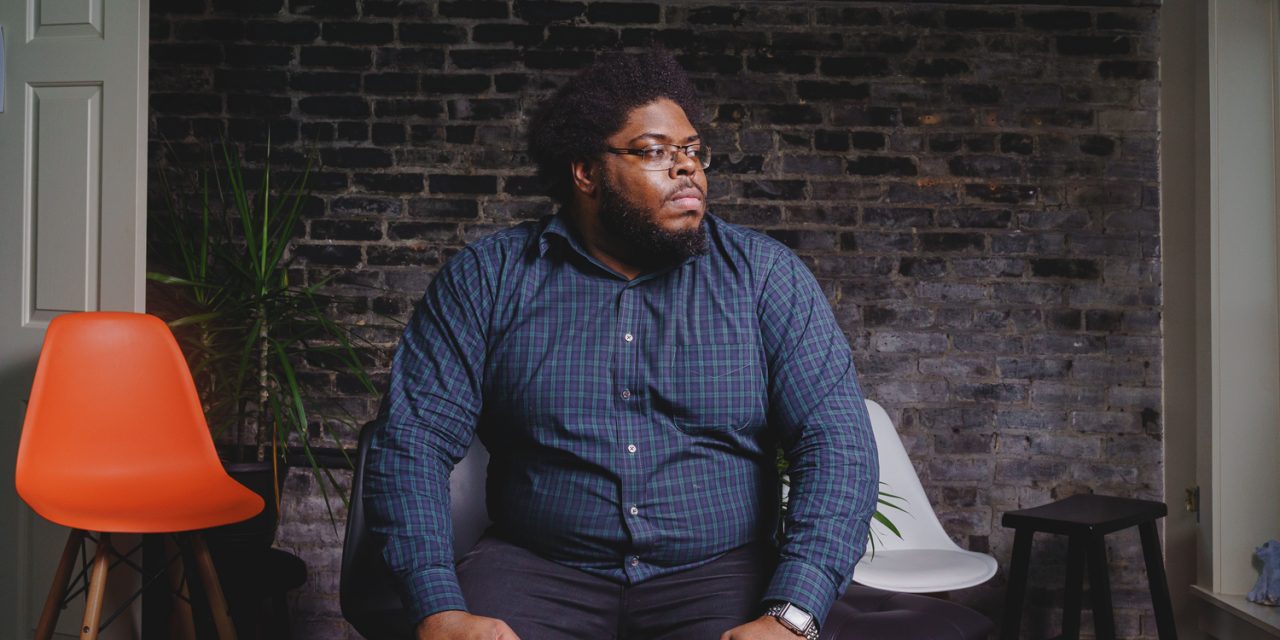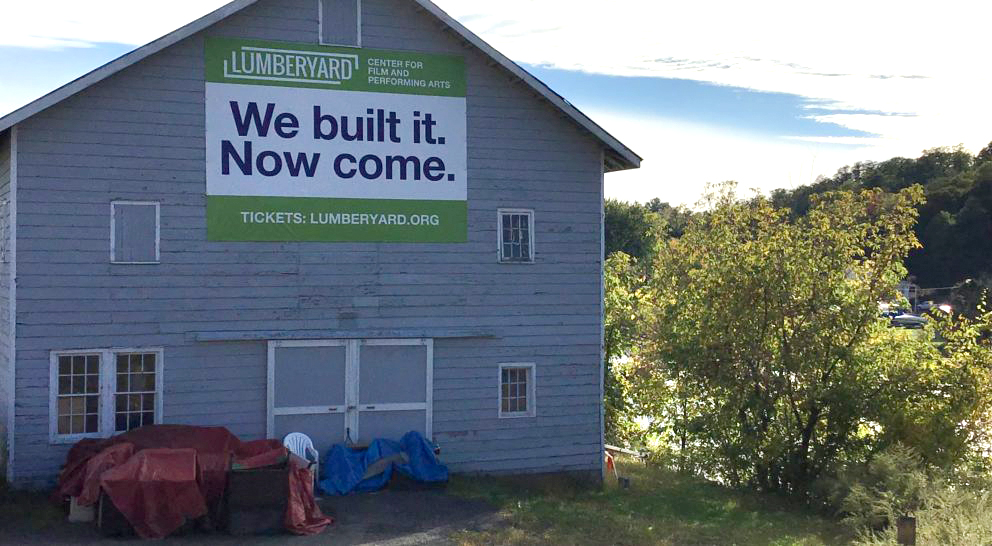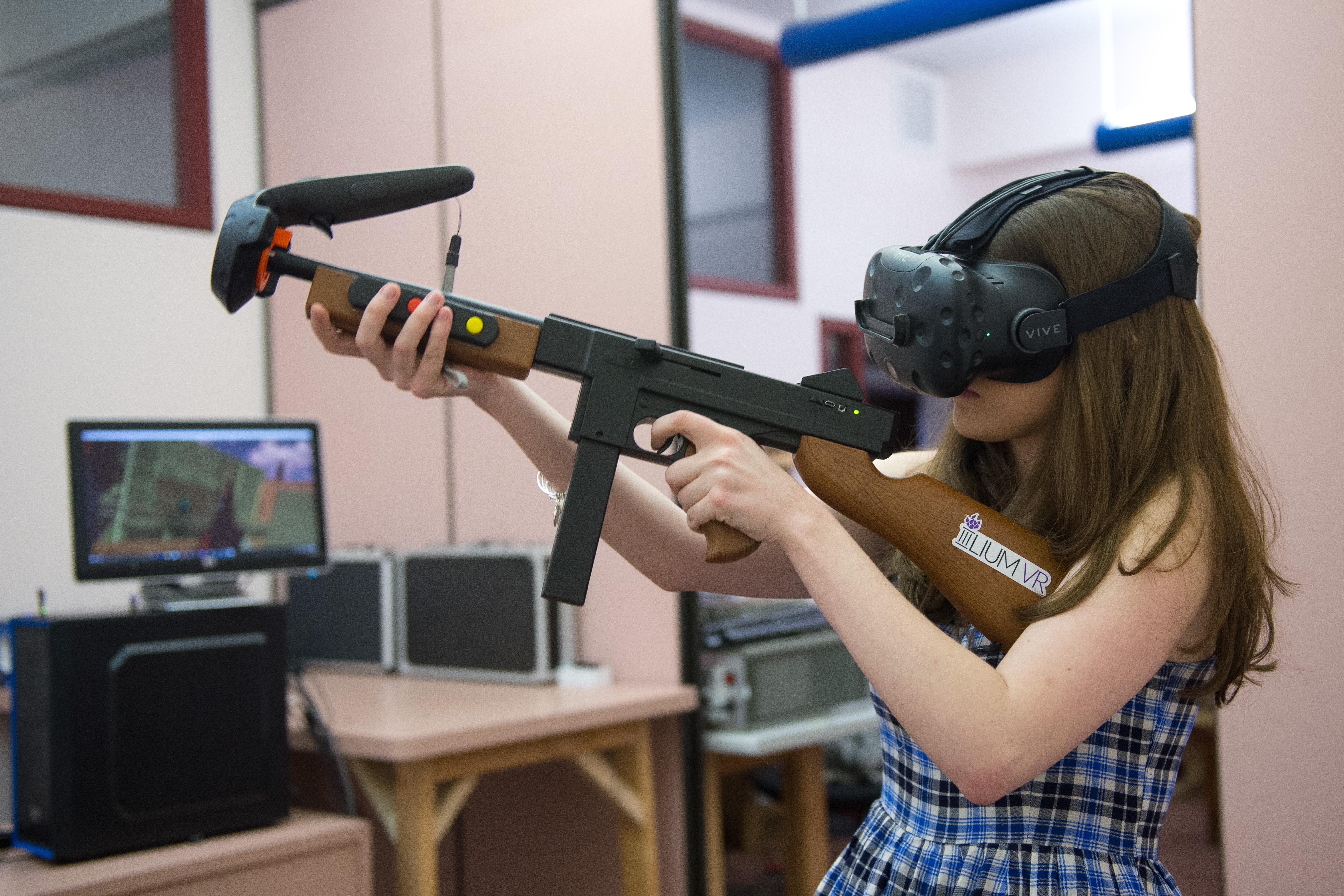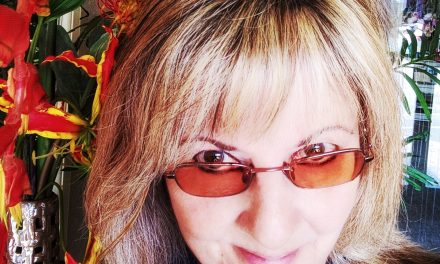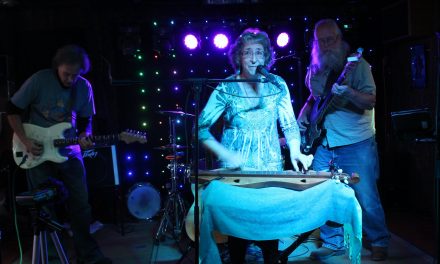Photo Credit: Jamel Mosely
Creative Under 40 Story by David King and Katie Cusack
His rage stems from no one ‘making room’ for black actors
Acting in his aunt’s local productions. While he longed to be outside playing with other kids, he also yearned to perform for an audience. So, he kept at it. At Albany High School, Moore studied acting under Ward Dales and Gregory Marsh. He pursued his passion at SUNY Potsdam, focusing on theater education and African American theater.
He continued working with various troupes and schools. Eventually he decided to try to make it in New York City. It’s not that he was unsuccessful. He landed gigs on Showtime, NBC and The History Channel, but they weren’t satisfying.
“I did the whole 5 a.m. get up, make my way to an audition with a hundred other people,” he says. “And I sat there and waited for them to ask me to play up the line, to make it more hokey, to hear them ask ‘Can you make it blacker?’
“It wasn’t that I couldn’t do it,” he continues. “It wasn’t that I was scared to do it. I wasn’t nervous. I just had to have an epiphany and I was like, ‘You know something? I’m better than this. I know I’m better than this and I’d rather create something. A friend of mine said, ‘Well, Aaron, do you want to act or become famous?’ I said, ‘Well, it’s a pretty good question.’ I couldn’t answer them. It finally came to me and I said, ‘You know, I think I just want to create. I don’t want to act, I don’t. From age 7 to 18, Aaron Moore constantly heard, “If you like acting and being a black actor, you’re going to have to try just as much if not harder than anybody else to get the roles that you want. You have to be the best you can be physically, mentally, spiritually and emotionally. And if you’re not there, don’t even try.”
Moore’s aunt—Wanda Webster, a director, author, writer, costume designer and singer—brought Moore to theaters, workshops, protests and performances. It became clear that Moore was interested in performing, and she was going to make sure he was ready.
“She was saying that all the time, it would get on my nerves and she would make me practice acting the way other people would have their kids practice instruments. She had a stand with a bunch of scripts and notes and she’d make me perform for an hour a day,” recalls Moore.
Moore was soon want to be famous. “I want to create.” Moore returned home and has since become a major advocate for black roles in local theater. Through his teaching organization, Acting with Aaron, he offers instruction and produces shows. He recently staged a reading of his own work creation has become a major part of Moore’s life in Albany, but his classes empower people without visions of Broadway to gain confidence, improve public speaking and, in some cases, confront their demons. In a class at Root3d in Albany, Moore uses acting techniques to allow participants to let off stress and confront deep-rooted emotional issues.
“A lot of what I do there is about how we deal with stress from different points of our life,” he explains. “How do we work on karma from different parts of our past or current trauma? How do we change how we act in different types of relationships?”
While the classes demand bravery from participants, they also require Moore to adapt to each individual and their concerns. As part of the cast of “Whitewashed: the racism project,” Moore has drawn theatergoers to venues across the region to take in a work that forces them to consider the impacts of racism in an emotional and unfiltered fashion. He recently decided to step aside from his role to give other black actors a chance at the part.
Behind the scenes, Moore continues to push local theaters to cast black actors beyond Black History Month and traditional or stereotypical black roles. It seems like a burden he’s carried since a very young age. And what a burden it must be.
“I wouldn’t say it’s a burden,” says Moore immediately. “I would say it’s a rage at this point where all I want to do is just fluidly perform the way white actors can. And I can’t do that. Chris Rock had a real great quote that I’m going to paraphrase: He said that white actors can just act, but black actors are treated as the leader of their entire race while acting. That stuck with me a lot.”
At this point “I know I have the talent,” he says. “I know because I’ve worked at it all my life and I just really want the ability to say, ‘Oh, this show’s happening or I want to do that.’ And not being able to do those shows or have people who look like me, it’s really unfortunate and it’s the truth but it’s something I’m trying to change through Acting with Aaron.”
Moore says he will continue to agitate behind the scenes and publicly to get local theaters to make more and better opportunities or black actors. He does that out of principle, but also because he’s pained to see so much obvious talent pushed out of the area.
“The raw talent and skilled talent looks like this,” Moore says, spreading his hands wide. “And the room for that talent is this small,” he says, moving his hands together. “I know all these talented black actors who have left the area, or they have simply given up on acting because no one makes room for them. And that is where the rage comes from.”

